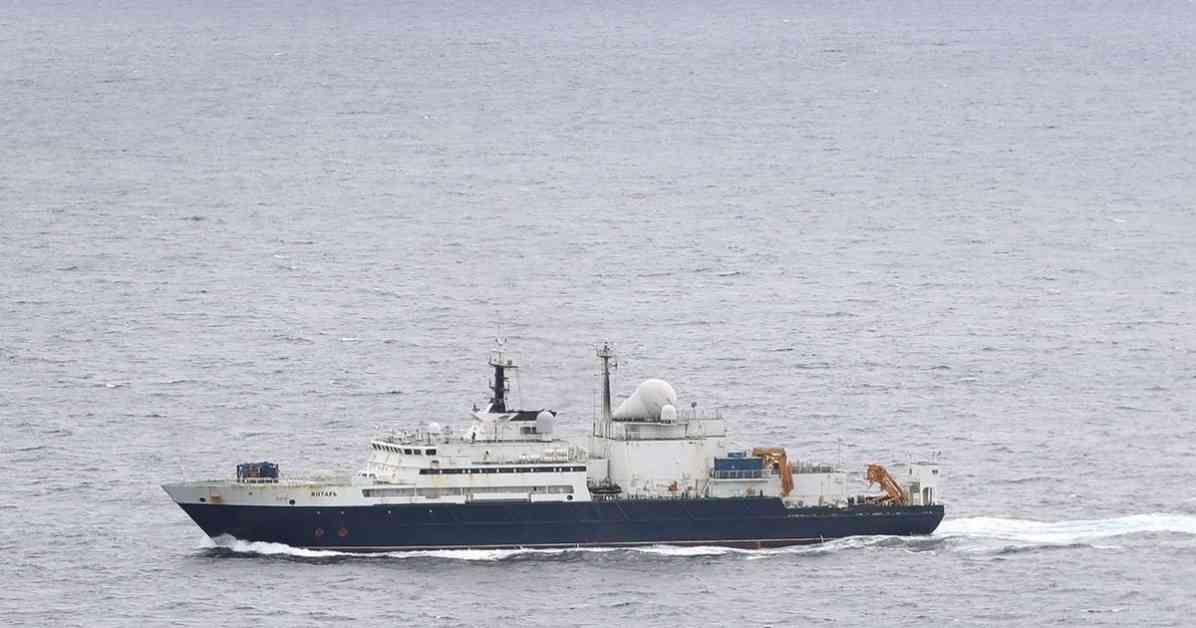A Russian spy ship, the Yantar, known for its controversial activities, is currently off the coast of South Devon. The ship, which is equipped with mini-subs for covert operations, was spotted heading west down the English Channel. In response, the RAF deployed a Poseidon marine patrol aircraft from Lossiemouth in Scotland to monitor the ship’s movements near Start Point in Devon and Lizard Point in Cornwall.
The Yantar, a 107m long vessel with a top speed of 15 knots, is considered one of the most advanced ships in the Russian Navy. It is equipped with two deep-diving autonomous underwater vehicles and has a crew of 60 members. Since it began operations in 2015, the Yantar has been known to position itself near undersea telecommunications cables in various locations around the world, including Guantanamo Bay, the Norwegian Coast, Israel to Cyprus, Rio de Janeiro, and Ireland.
Last year, the Yantar was involved in an incident classified as ‘harassment’ by the Norwegian Polar Institute when it shadowed a Norwegian polar research vessel. In 2018, the ship was closely monitored as it passed through the English Channel, with HMS Diamond and helicopters from RNAS Yeovilton providing support.
The presence of the Yantar off the coast of South Devon has raised concerns about potential espionage and security threats. The Royal Navy has stated that they routinely monitor UK territorial waters to ensure compliance with maritime laws and protect national interests. The UK Ministry of Defense has confirmed the ship’s presence but declined to provide further details on ongoing operations.
The tracking of the Yantar by the RAF and the monitoring of its activities highlight the ongoing tensions and strategic competition between Russia and Western powers. The ship’s history of operating near sensitive undersea cables and engaging in provocative behavior underscores the need for constant vigilance and surveillance to safeguard national security interests.
As the Yantar continues its journey down the English Channel, it remains under close observation by the UK military and international partners. The incident serves as a reminder of the evolving threats in the maritime domain and the importance of maintaining a robust defense posture to counter potential security challenges posed by foreign vessels engaged in covert intelligence operations.













